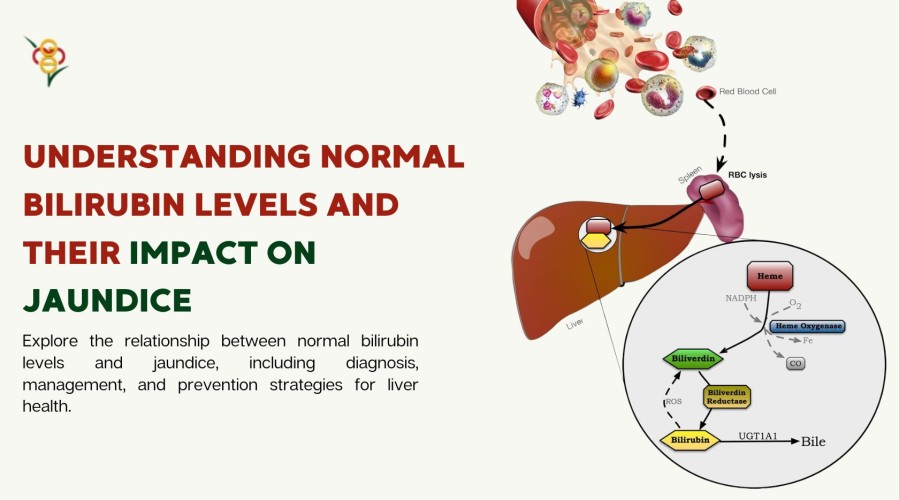Learn effective solutions for digestive problems with expert tips to improve gut health, reduce discomfort, and maintain a healthy digestive system.
What Are the Normal Bilirubin Levels and How Do They Affect Jaundice?

Jaundice can be an alarming condition, characterised by a yellowish tinge to the skin and the whites of the eyes. But did you know that it's often tied to your bilirubin levels? Here's what you need to know about normal bilirubin levels and their connection to jaundice.
What is Bilirubin?
Bilirubin is a yellow compound that the body creates when it breaks down old red blood cells. It's a normal part of the waste material in our blood. The liver helps to filter it from the blood and changes it into a form that can be eliminated through the stool. However, if something is off with this process, bilirubin builds up in the body, leading to jaundice.
Normal Bilirubin Levels
The normal range for total bilirubin in adults varies slightly between laboratories but is generally between 0.3 and 1.2 milligrams per deciliter (mg/dL). These values can differ depending on age, gender, and other factors. It's important to consult your healthcare provider to understand what your specific bilirubin results mean.
Subheadings:
- What Influences Bilirubin Levels? Understanding the factors affecting bilirubin can provide insights into liver health and the risk of jaundice. Conditions like liver diseases, blockages in the bile ducts, or problems in the breakdown of red blood cells can lead to elevated bilirubin levels. Even newborns often have higher bilirubin due to immature liver function, which is usually harmless and resolves without treatment.
- Detecting and Diagnosing Jaundice Diagnosis begins with observing the classic yellowing of the skin or eyes. If jaundice is suspected, a bilirubin test may be performed to confirm the diagnosis and assess bilirubin levels. This test can help determine the type of jaundice—pre-hepatic, hepatic, or post-hepatic—each linked to different issues in the process of bilirubin clearance.
- Effective Management of High Bilirubin If your bilirubin levels are high, the treatment will focus on the underlying cause. For instance, if liver disease is to blame, your healthcare provider may recommend lifestyle changes or medication. For newborns with jaundice, therapies like phototherapy are common, where light helps to break down bilirubin in the skin.
Prevention: Key to Maintaining Healthy Bilirubin Levels
- Stay Hydrated: Drinking enough water helps your liver flush out toxins, including excess bilirubin.
- Healthy Diet: Foods rich in antioxidants can support liver health. Consider incorporating fruits, vegetables, whole grains, and lean proteins into your diet.
- Avoid Alcohol: Alcohol can stress your liver, hindering its ability to process bilirubin effectively.
When to See a Doctor It's essential to consult with a healthcare provider if you notice any signs of jaundice or if you're concerned about your bilirubin levels. Early diagnosis and treatment can prevent the progression of potential liver-related issues.
Schedule an Appointment at GEM Hospital If you're dealing with jaundice or other liver-related symptoms, it's crucial to seek professional medical advice. At GEM Hospital, our team of specialists is equipped to diagnose and treat conditions associated with high bilirubin levels. Schedule an appointment today to ensure your liver health is on the right track.
Blogs & Article
Explore current research trends in digestive health, including new treatments, advanced diagnostics, and innovations improving gut health and patient care.
Discover common digestive health myths and the real facts. Learn simple tips to improve gut health and maintain better digestion for a healthier life.


